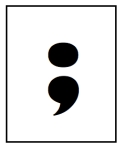‘Journalism jail’ proposed for poor immunization reporting
On the weekend, Twitter was aflutter with news from the annual meeting of the Association for Health Care Journalists that vaccine researcher Dr. Paul Offit said there should be a “journalism jail” for reporters who perpetuate false controversies in medicine.
Writing for Forbes.com, Dr. David Kroll (PhD) noted that Dr. Offit’s comments came in the question period following his keynote speech at the conference in Denver.
Dr. Offit took issue with reporters and producers who quote celebrities who have no medical qualifications yet promote themselves as knowledgeable about health matters, and especially immunization, wrote Dr. Kroll. (Dr. Kroll is a pharmacologist and teacher of science and health writing at North Carolina State University, as well as contributor to Forbes.) Continue reading →
Lorem ipsum: ‘Placeholder’ text actually means something, sort of
 “Lorem ipsum dolor sit amet” etc. etc. is used by publishers and designers as ‘placeholder’ text while working out a layout before the actual text is ready or just to rough out what a page or book should look like. Even some word processing programs (Adobe InCopy, for example) provide a Lorem ipsum placeholder text option.
“Lorem ipsum dolor sit amet” etc. etc. is used by publishers and designers as ‘placeholder’ text while working out a layout before the actual text is ready or just to rough out what a page or book should look like. Even some word processing programs (Adobe InCopy, for example) provide a Lorem ipsum placeholder text option.
“Lorem ipsum,” which has been used since the 16th century, has been thought to be fake Latin and is so jumbled, it’s almost … Greek (as in, “It’s Greek to me.”) But Nick Richardson of the London Review of Books recently reviewed its origins and revealed that “Lorem ipsum” actually sort of means something. Continue reading →
Quotable: ‘Memory is not about the past’
“Memory is not about the past – it’s about the future and the ability to predict. Rarely is a precise, exact memory of what happened in the past of particular use if you can’t generalize from it.”
– Dr. Robert Stickgold (PhD), associate professor of psychiatry, Harvard Medical School and Beth Israel Deaconess Medical Center, speaking at the 24th Annual Rotman Research Institute Conference, Toronto, March 2014
Semicolons for life
 The semicolon has turned into more than a pesky piece of punctuation.
The semicolon has turned into more than a pesky piece of punctuation.
It’s now a symbol of hope for anyone who has ever attempted suicide, self-harmed or supports those who have.
The semicolon was chosen as the symbol because it used to separate major clauses in a sentence; in other words, “The semicolon is used when a sentence could have ended, but didn’t,” according to the Semicolon Movement.
Word Watch: digital dementia
 Canadian WordSpy Paul McFedries has noted “digital dementia” as another medically-related term that has established itself in the lexicon.
Canadian WordSpy Paul McFedries has noted “digital dementia” as another medically-related term that has established itself in the lexicon.
He defines it as “impaired memory and cognitive functioning due to the extended use of digital devices.”
McFedries cites two uses of it this week — on in the Seattle Times and another in the Edinburgh Evening News — and gives the earliest usage to the Korean newspaper The Chosun Ilbo in 2005. Continue reading →
Word Watch: conversation • Journalists should reclaim the word “interview”
 I’m not sure when it started, but the “conversation” bug seems to have infected everyone at CBC Radio, at least in Toronto.
I’m not sure when it started, but the “conversation” bug seems to have infected everyone at CBC Radio, at least in Toronto.
It may have spread more widely, but I’m a dedicated CBC Radio listener, and the aural assault is the more noticeable than if it appears in print or is used on TV with the distraction of visuals.
The principal offenders here are Matt Galloway of CBC’s “Metro Morning” and Gill Deacon of “Here and Now” (the afternoon programme). They use the word to mean “public discourse” as well as “interview.” But never (or almost never) to mean the kind of informal talk the word connotes if not denotes. Continue reading →
Word Watch: deprescribing (and frailty)
 The success of modern medicine has meant that the longer people live, the more managed conditions they will have.
The success of modern medicine has meant that the longer people live, the more managed conditions they will have.
In some circles, that’s known as “co-morbidities”; in the editorial in this month’s (March 2014) issue of Drug and Therapeutics Bulletin (DTB, a BMJ journal), it’s “multimorbidity.” (Editor’s note: Toe-MAY-toe, toe-MAH-toe.)
The editorial notes that multimorbidity has led to polypharmacy which can result in drug interactions.
One way to prevent drug interactions is to avoid “problematic polypharmacy” and practice “appropriate polypharmacy,” including “medicines optimization” which must include the notion of stopping some medications, or “deprescribing.” Continue reading →
Make up a word — it could wind up in the dictionary
 Hasbro, the company that markets Scrabble, has invited players (actually, all and sundry) to nominate a word to be included in the next edition of The Official Scrabble Players Dictionary.
Hasbro, the company that markets Scrabble, has invited players (actually, all and sundry) to nominate a word to be included in the next edition of The Official Scrabble Players Dictionary.
“To keep relevant for today’s fans, Scrabble and Merriam-Webster … have reserved a spot in the dictionary for a word nominated and chosen by Scrabble fans during the Scrabble Word Showdown,” a news release from the company said.
Hasbro seems to have in mind words like “selfie” and “hashtag,” pointing to “changes in technology, trends and pop culture events [that] have introduced many new words” since the last edition of the Scrabble dictionary was published in 2005.
But surely we can do better than that. Continue reading →
Coverage of ‘Alzheimer’s test’: Holy Grail, or holy fail?
I’m not going to try to match this: Paul Raeburn, chief media critic at the Knight Science Journalism Program at MIT, has evaluated recent news coverage of a purported Alzheimer’s test. He found virtually all the coverage wanting, awarding the title of “worst” to CNN.
In Raeburn’s opinion, most stories were merely “awful.”



In praise of Comments
An outstanding example of the value of Comments came not from medical journalism, but climate change reporting. Still, I thought it should be noted. Continue reading →
Share this: